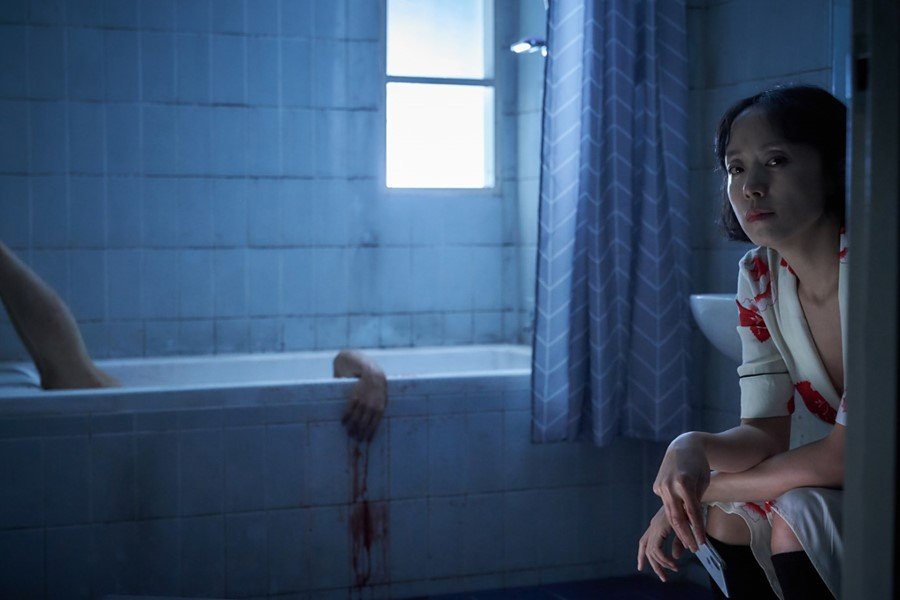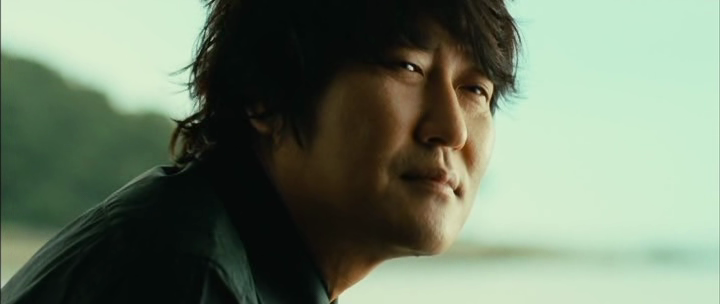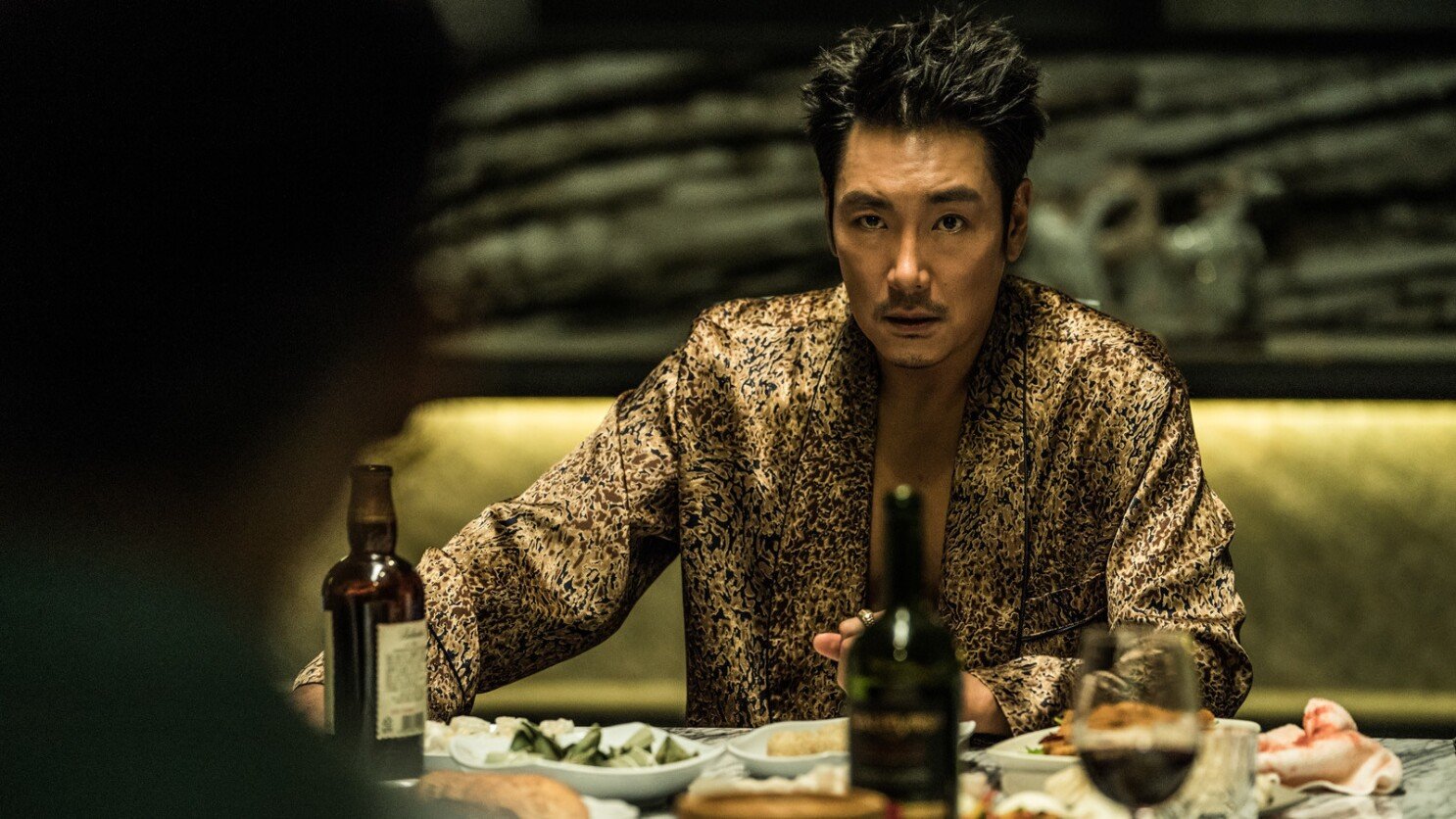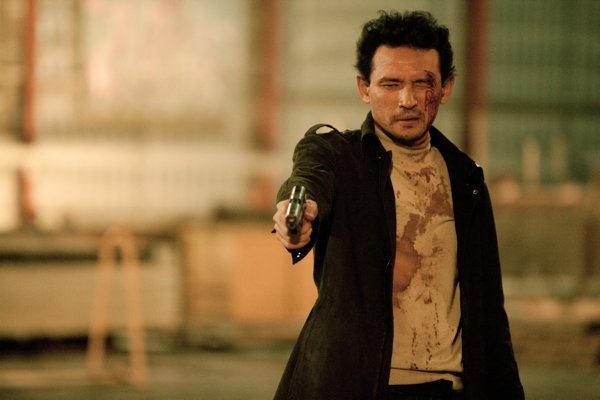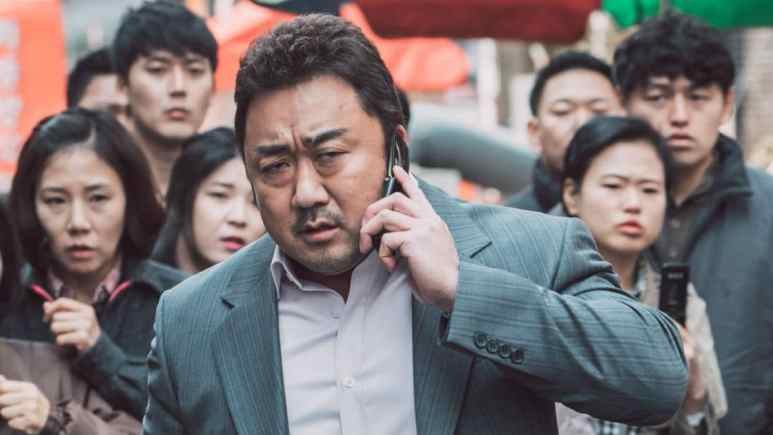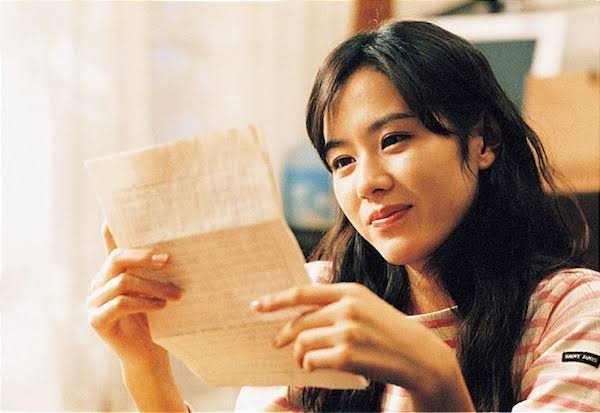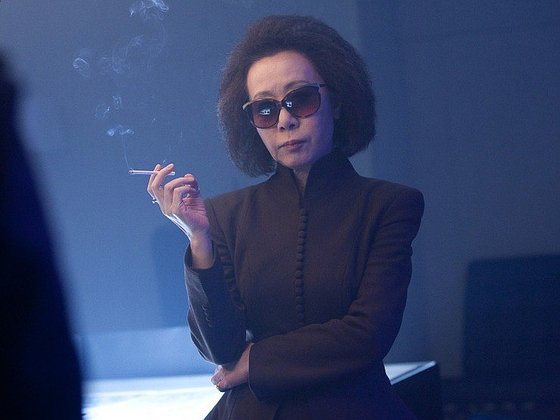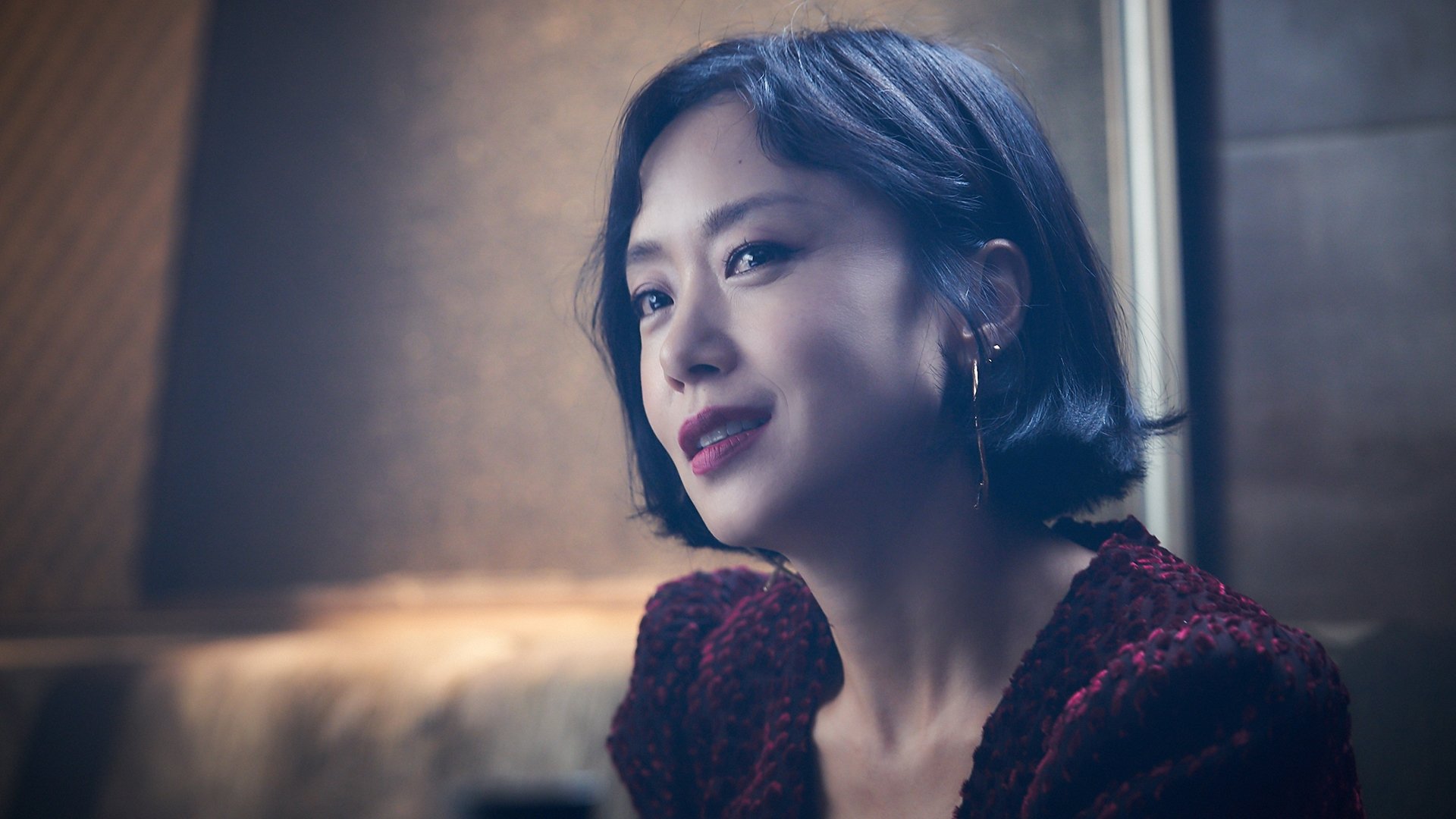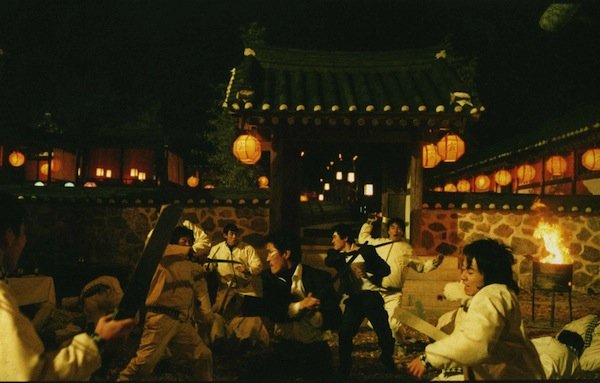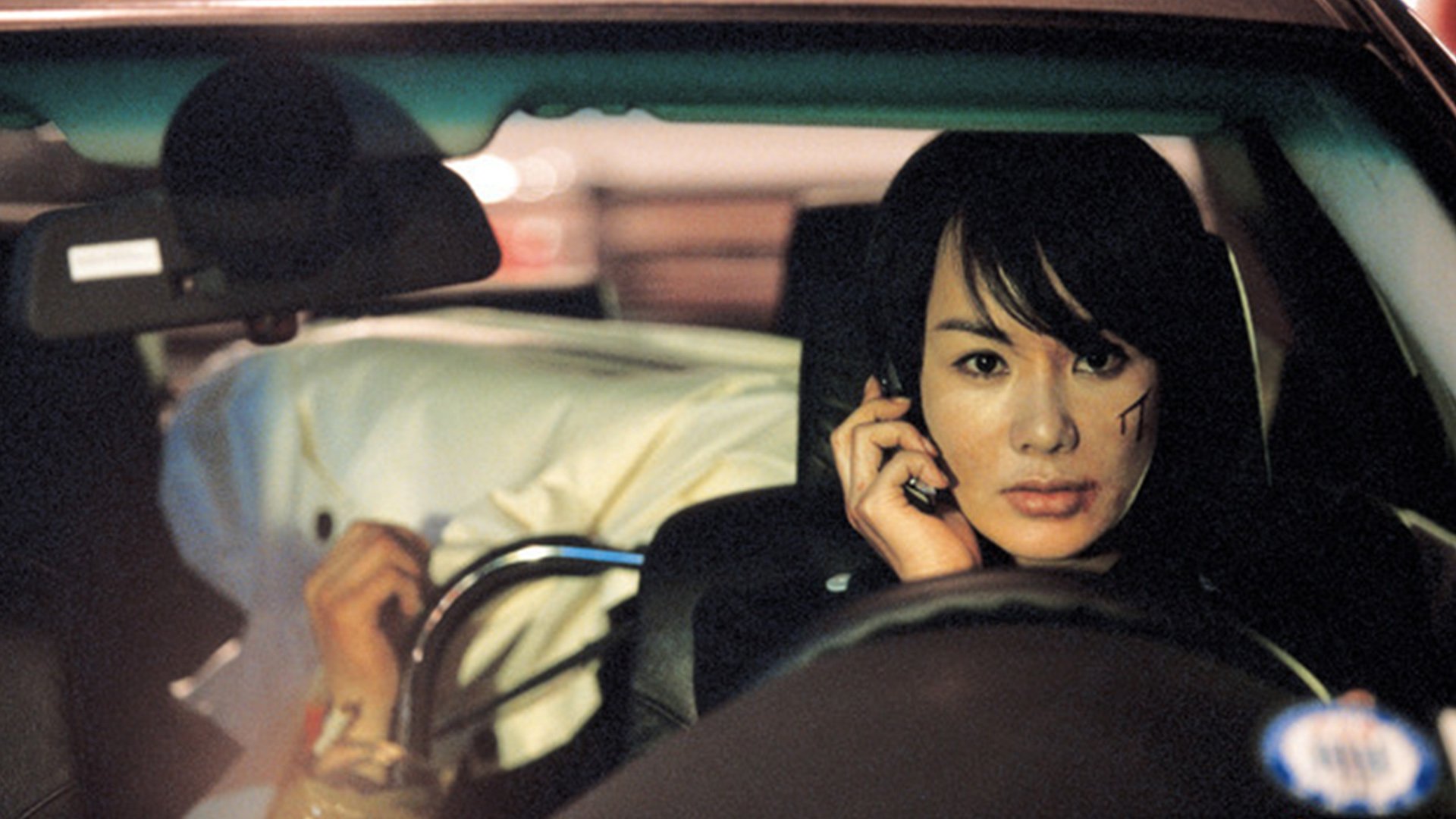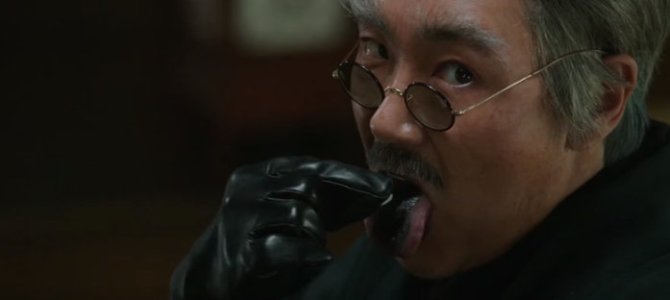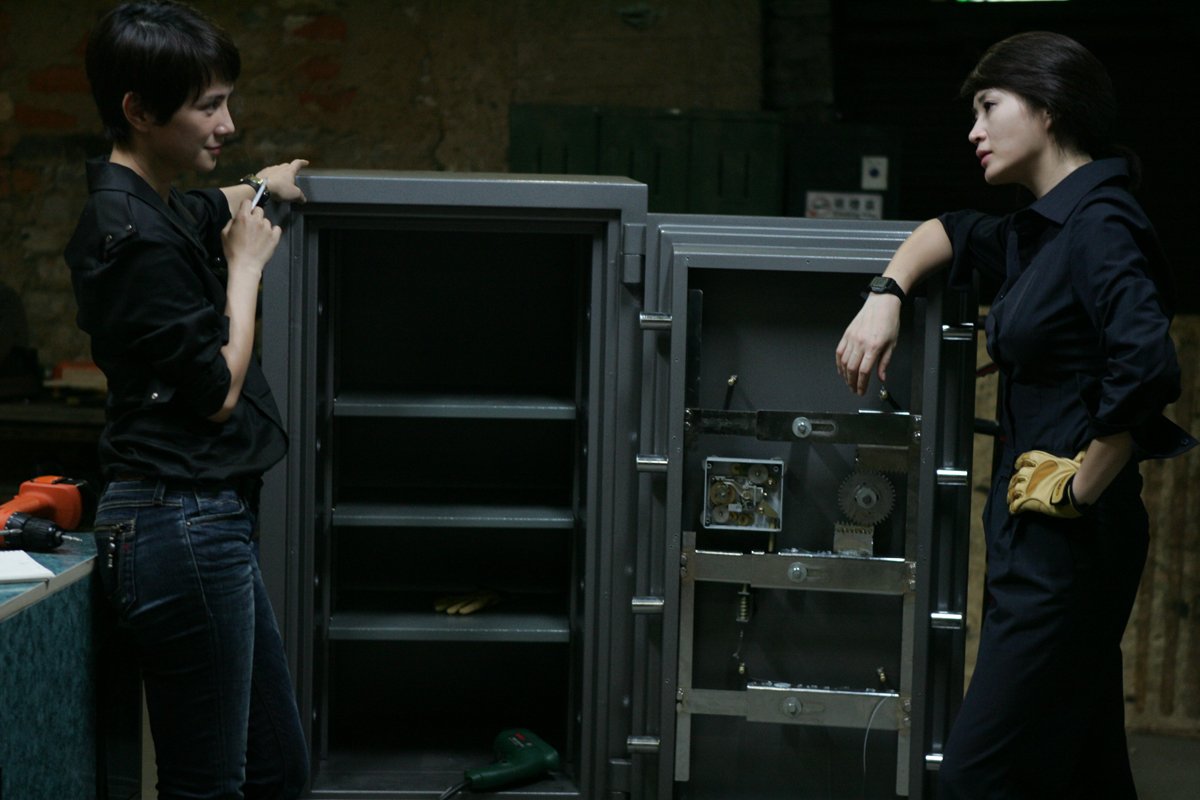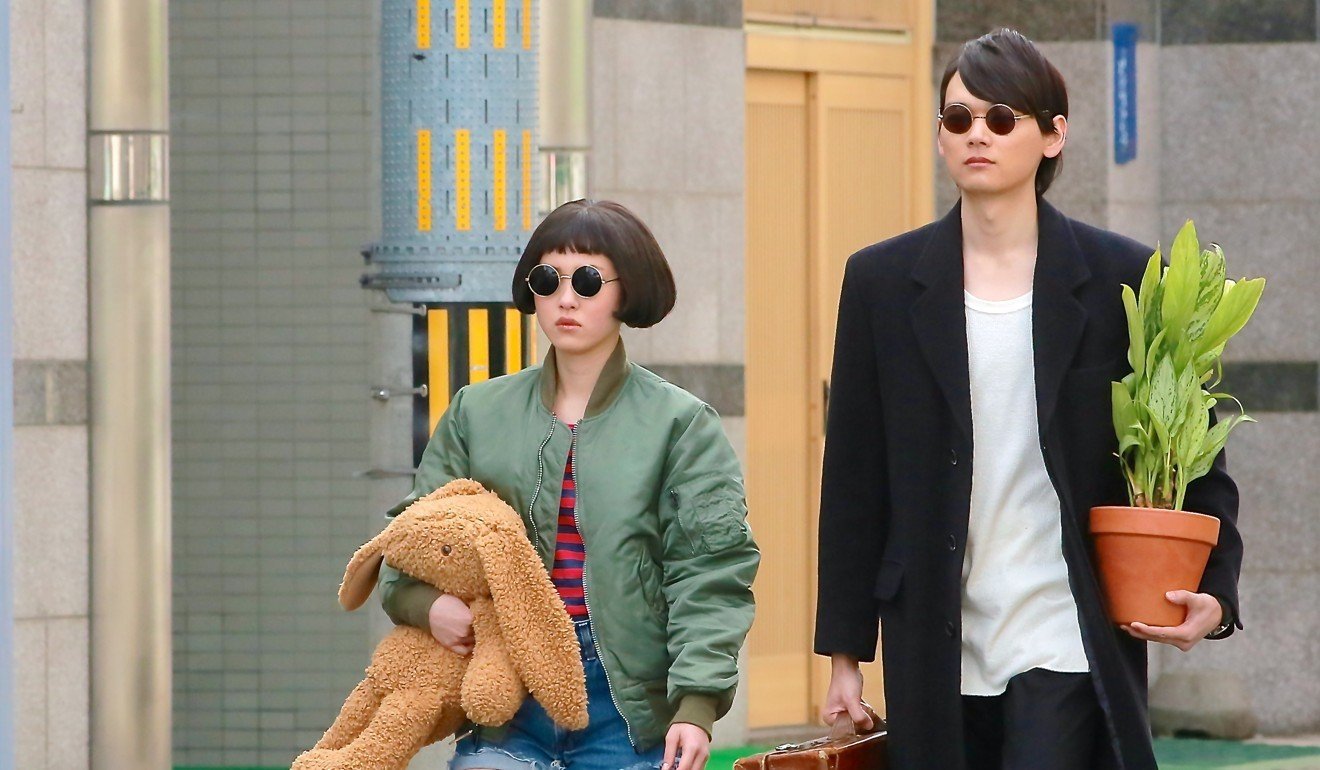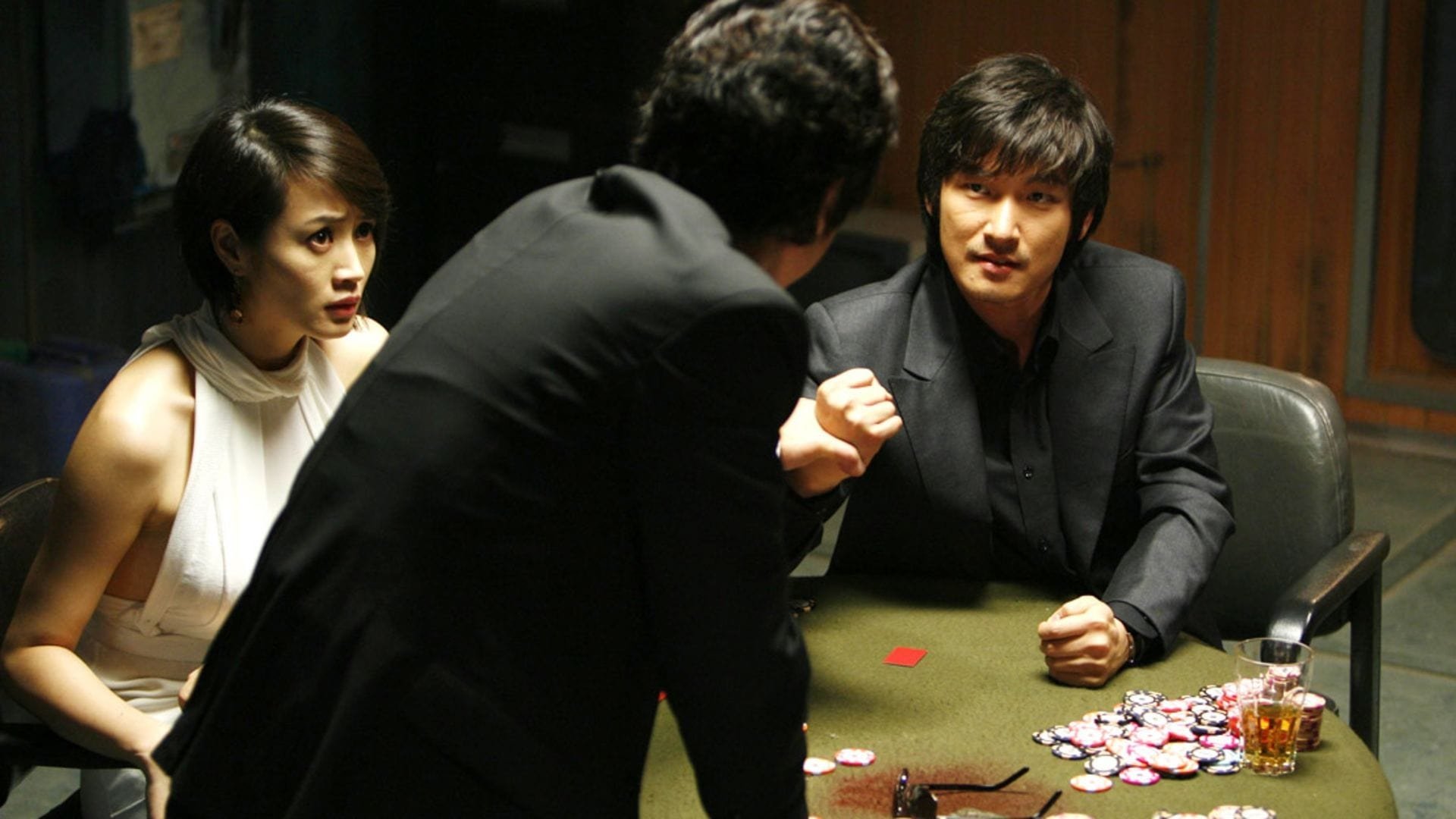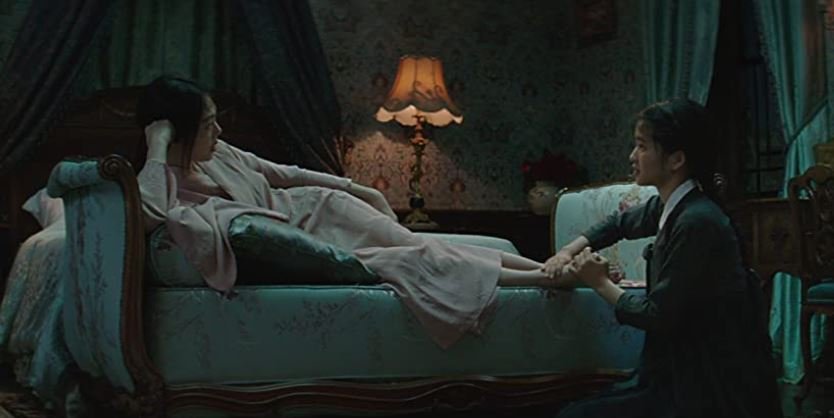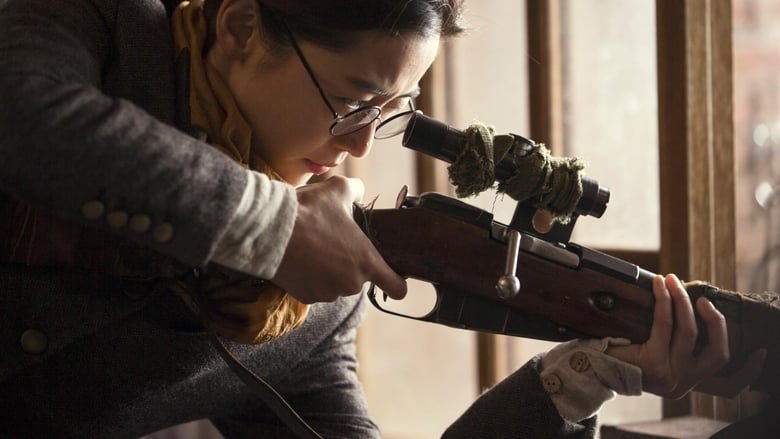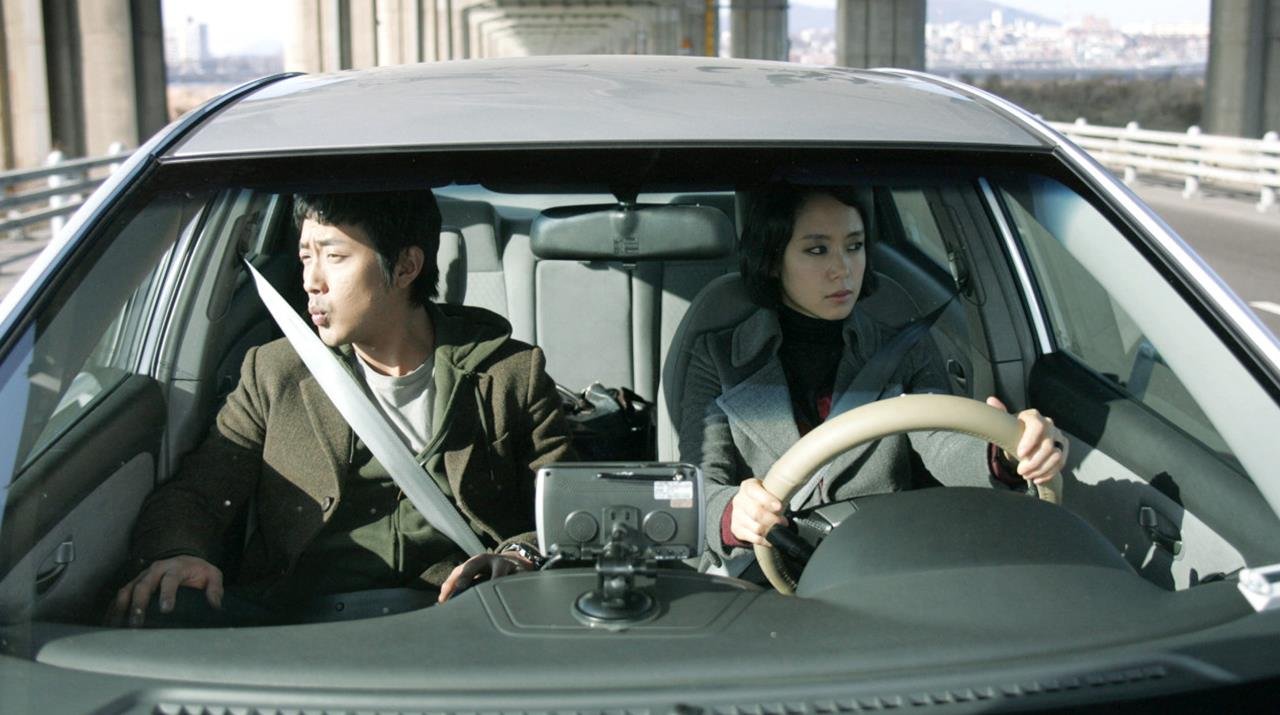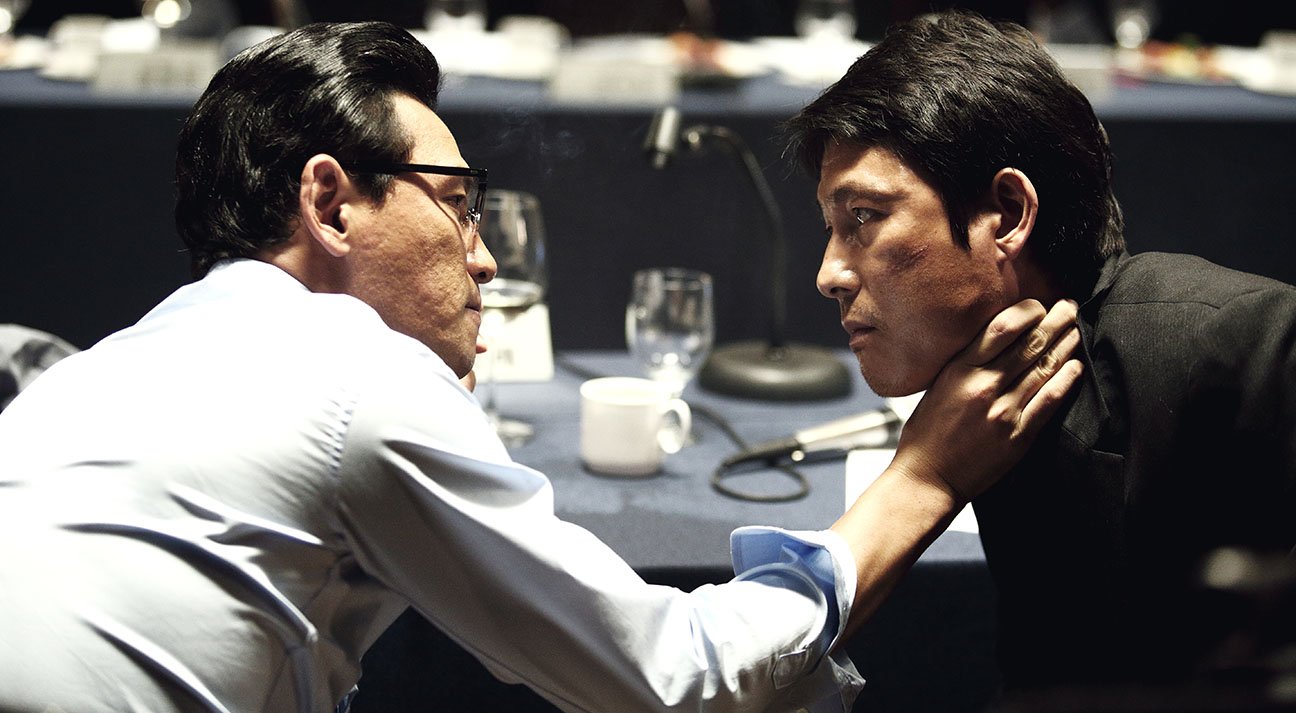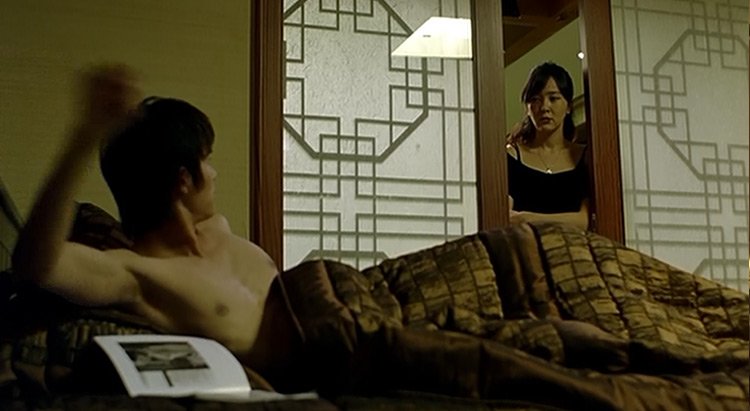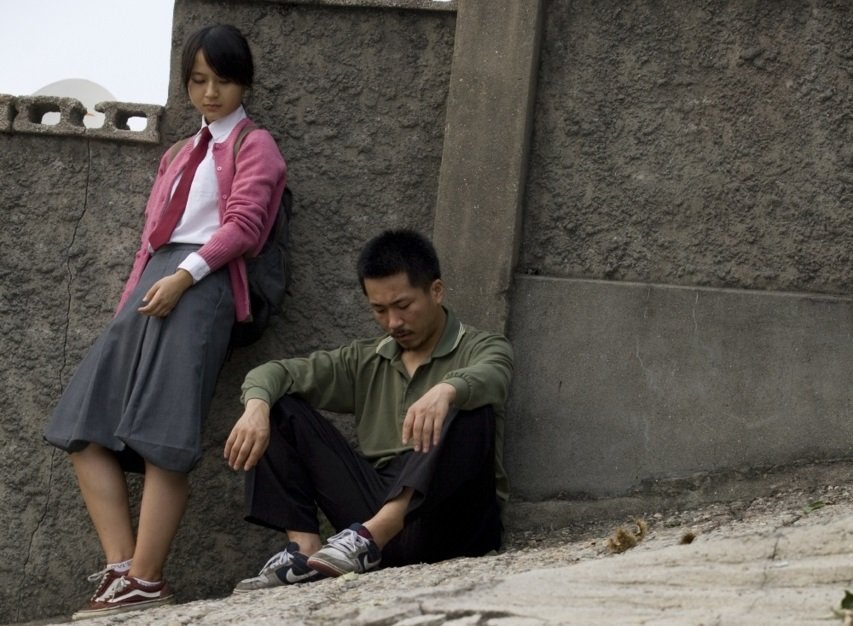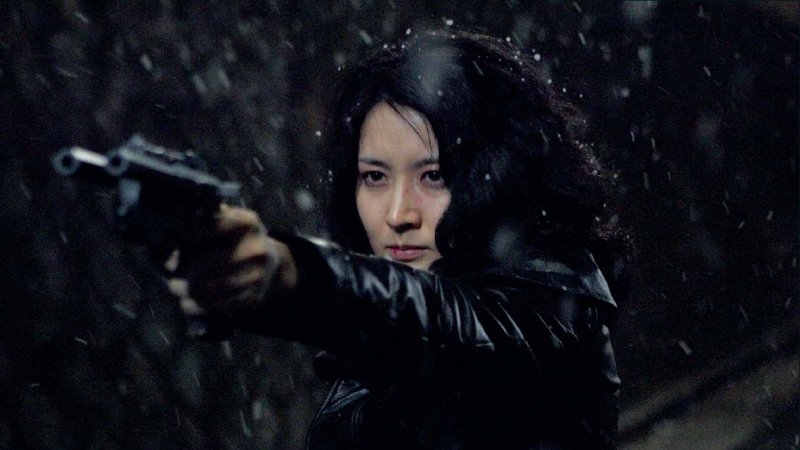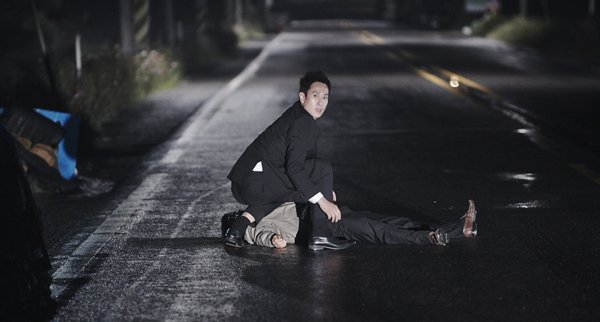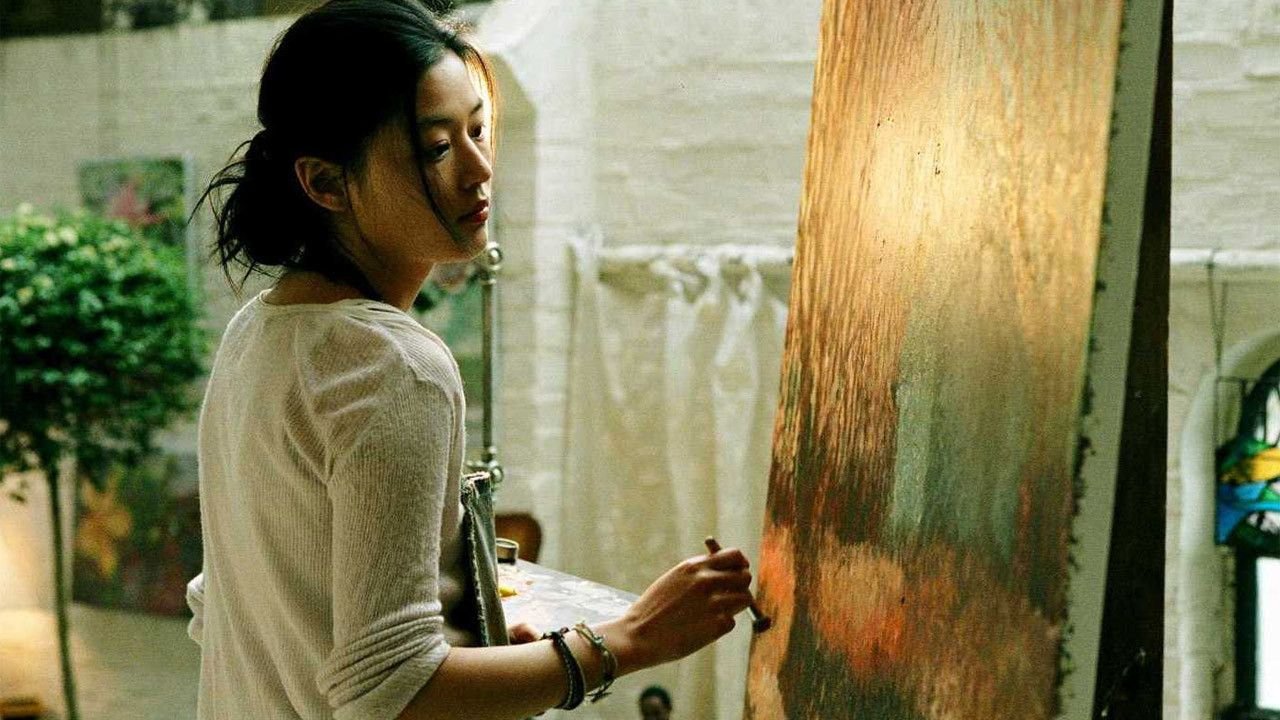In 2021, I watched 508 movies. This is not healthy or wise behavior, but this was not a healthy or wise year. In order to extract at least some value out of those 1000ish hours, I’m going to write about it.
South Korea’s been quietly putting out the best noir in the world for over two decades by my count, and digging through 80-ish of those films* this year was an absolute blast. If you’re a fan of neo-noir and you’re looking for the contemporary best-in-class, this article’s not a bad place to start.
*Out of 101 total South Korean films.
Looking quickly over the complete list, twenty-six of them are movies I’d consider truly excellent. The next bunch of thirty-ish films after those were good enough that I’d recommend them without qualifiers or concern, and another thirty or so live comfortably in that space between “decent” and “pretty good.” Only maybe ten were true misfires, and even within those I still found something worth praising that might justify a watch for certain viewers in three or four of them.
This is the first article in a series, and likely the longest. Readers should feel free to skip around to sections that interest them most; if you just want the bottom-line best movies, there’s a Top 10 list at the end.
Most Watched Actors
8 Movies: Jung Woo-sung
Shanghai Grand; Born to Kill; City of the Rising Sun; Daisy; The Good, The Bad, The Weird; Cold Eyes; Asura: City of Madness; Beasts Clawing at Straws
I didn’t have an opinion on Jung Woo-sung coming into 2021 but I certainly have one now, as he’s emerged as my favorite Korean actor. His pretty-boy good looks would have typecast a lesser actor, but his sleek charisma and his deep, almost Mads Mikkelsen-esque library of nuanced microexpressions let him fit just about any type. He’s a terrifying unstoppable force in Cold Eyes, a desperate-but-dangerous cornered rat of a man in Asura: City of Madness, a pitiable deadbeat in Beasts Clawing at Straws, a pair of heartbreakingly sympathetic killers—one who’s seen too much to ever be happy, the other too little—in Born to Kill and Daisy… which is not to say he can’t still nail the conventional pretty boy roles. He’s the best part of the uneven-but-charming “Eastern Western” The Good, The Bad, The Weird as the titular “Good,” playing an explicitly archetypal leading man, while in City of the Rising Sun he manifests as God’s Perfect Himbo.
8 Movies: Song Kang-ho
Green Fish; Shiri; Joint Security Area; Memories of Murder; Sympathy for Lady Vengeance; Secret Sunshine; The Good, The Bad, The Weird; Hindsight
Probably Korea’s most recognizable actor to western audiences thanks to Parasite, you can’t fault the man’s talent or range. While the crop of his I saw this year included a couple relative disappointments (Hindsight, as a worn out former mobster, and Shiri, as a South Korean agent trying to prevent a terrorist attack), he wasn’t the problem with either, and in both cases helped elevate what might have otherwise been trainwrecks into forgettably average crime/espionage thrillers. He had only bit parts in two of the better films I saw him in (Green Fish, as a mob underling, and Sympathy for Lady Vengeance, as an overconfident assassin), but he was as good as the parts allowed in both. He carried the excellent Memories of Murder as its bumbling, dropkick-happy lead detective and nails the make-or-break final shot in a way few actors could. He was a significant value-add for everything else too, even if he was occasionally upstaged by a Jung Woo-sung (The Good, The Bad, The Weird) or a Jeon Do-yeon (Secret Sunshine).
8 Movies: Cho Jin-woong
A Dirty Carnival; Nameless Gangster; Perfect Number; A Hard Day; Assassination; The Handmaiden; Believer; Bluebeard
I came into the year with a healthy respect for Cho Jin-woong, Character Actor, based off his stellar turns in The Handmaiden (as the soul-wrenchingly creepy Uncle Kozuki) and Assassination (as lovable, reluctant freedom fighter Big Gun)—both films I loved enough to rewatch this year, incidentally—but I left a huge fan of Cho Jin-woong, Leading Man. While he’s only a cameo in The Outlaws (as an annoyed police muckety-muck from an external department), and sinks his teeth into a few meaty supporting roles in A Dirty Carnival (as a good natured, overweight mob flunky) and Nameless Gangster (as a put-upon rival gangster who deserved a lot more screen time), he also crushed a wide variety of leading roles.
His suffocating presence is the key ingredient in the incendiary concoction powering A Hard Day. By contrast, he’s the only thing keeping the otherwise muddy Blubeard above water as a proctologist who suspects one of his clients of being a serial killer. He has a bit more help in Perfect Number, where he manages to make his implacably suspicious policeman likable in spite of the peril he represents for Ryoo Seung-bum and Lee Yo-won as they scramble to cover up an extremely justifiable homicide. Finally, he ably fills Simon Yam’s very large shoes in the hypnotically kinetic Drug War remake, Believer, as a cop repeatedly forced to decide just how deep he’s willing to go to catch a Keyser Soze-esque apocryphal druglord.
9 Movies: Oh Dal-su
Sympathy for Lady Vengeance; The Good, The Bad, The Weird; Private Eye; Hindsight; The Thieves; The Pirates; Assassination; Veteran; Memoir of a Murderer
Full disclosure; Oh Dal-su should have pushed the last three actors off the list, but I made a counting error I didn’t catch until I’d written their blurbs, and they’re all better than he is, so they get to stay. While Oh Dal-su is an excellent supporting actor—he’s good to great in all nine movies listed here—he’s also not someone I feel excited to write about in any depth, having recently learned he’s been accused of sexual assault and harassment by multiple women (though he ultimately beat the assault charges in court). My blog, my rules. If Oh’s got a problem with it, he should be less of a creep.
10 Movies: Hwang Jung-min
Shiri; A Good Lawyer’s Wife; Bloody Tie; Private Eye; The Unjust; Moby Dick; New World; Veteran; Asura: City of Madness; Deliver Us From Evil
Hwang Jung-min is possessed of one of the most expressive faces in cinema. When he’s playing a scoundrel—say, for instance, the gleefully corrupt mayor of Asura: City of Madness, the slimy philanderer of A Good Lawyer’s Wife, or the scumbag, self-interested cops of Bloody Tie and The Unjust—his features take on a rodent-like shiftiness, beady and opportunistic. When he’s instead a good man standing against an evil world… well, to be honest, he’s still a bit rodentesque, albeit more the “rat stuck in a trap” variety. Part of the fun of Hwang Jung-min’s movies is that even his heroes are usually scuzzballs, whether it’s the ego-driven narcissist reporter in Moby Dick, the puckish, self-interested PI from Private Eye, the tired-of-this-shit assassin in Deliver Us From Evil, or the improbably lovable living-embodiment-of-police-brutality-but-it’s-ok-because-the-bad-guy-in-this-one-is-capitalism from Veteran. In New World, he fits into both categories—hedonistic villain and scuzzball hero—as a sadistic, power-hungry gangster who’s somehow also the best person in the movie.
10 Movies: Ma Dong-seok
The Good, The Bad, The Weird; The Unjust; Nameless Gangster; The Neighbors; New World; Veteran; The Outlaws; Derailed; Unstoppable; The Gangster, The Cop, The Devil
The first thing I want to say about Ma Dong-seok is that there are very few things in cinema more viscerally satisfying than when he just hauls off and slaps a motherfucker with those meaty bricks he’s got on the end of each arm instead of hands. To that end, I must first mention The Outlaws, which is an entire movie of mostly just that. The Gangster, The Cop, The Devil combines some more quality slap work with a fun premise and some decently sharp writing, though neither the cop nor the devil measure up to Dong-seok’s gangster. Derailed expands his slapetoire to teenagers, who, let’s face it, have had it coming for a while now (it’s also quite good, and makes his teen-slapping pimp a lot more sympathetic than you’d expect). Unstoppable is a forgettable Taken clone but it’s fun enough and short enough that it’ll scratch that itch when you have it. Beyond those we’re mostly looking at cameos (Veteran, New World) or pre-stardom supporting roles (everything else), the best of which is either his overconfident faux martial artist in Nameless Gangster or his perennially aggrieved loan shark in The Neighbors. Between those two, Nameless Gangster is the better film, but Neighbors is the better (and slappier) Ma Dong-seok performance.
Note: I should add, for the record, that Ma Dong-seok is also a gifted dramatic actor above and beyond his slapomancy, and I feel a little bit bad for not spending more ink on his other talents, but it’d be a bit like focusing on Steph Curry being an excellent passer; it’s absolutely true, but it’s not the reason people are buying tickets to see him work.
12 Movies: Jeong Man-sik
Princess Aurora; Breathless; Rough Cut; Paju; The Yellow Sea; The Unjust; Moby Dick; A Hard Day; Veteran; Inside Men; Asura: City of Madness; Beasts Clawing at Straws
Korea’s ultimate crime chameleon, Jeong Man-sik tops the list without a single leading role to his name. Ubiquitous and reliably compelling, he nearly always plays either a cop, prosecutor, or a gangster (Paju being the lone exception, where he plays one of the leaders of a makeshift resistance movement). He always brings more to the part than is on the page. I loved him both as the angry, corrupt policeman hiding a (slightly) softer side in A Hard Day, and as the malevolent loan shark chewing his way through the rest of Beasts Clawing at Straws’ considerable ensemble cast (and most of its scenery). But my favorite role I saw him in this year or any other was as the surprisingly sensitive and open-hearted loan shark* in Breathless, where his tender friendship with his much more violent subordinate plays crucial emotional notes that help make the film so idiosyncratic, and so special.
*Korean noir is loan shark-infested waters relative to American noir, which tends to use drug dealers in similar roles instead.
Most Watched Actresses
6 Movies: Son Ye-jin
The Classic; White Night; Open City; The Pirates; Bad Guys Always Die; The Negotiation
Son Ye-jin was another new face for me coming into the year, and her movies were a bit of a mixed bag. She’s excellent as the badass buccaneer queen of The Pirates and as the conflicted heiress at the heart of the moody Swan Lake noir White Night… but she also made Bad Guys Always Die and The Negotiation, which were among the weakest Korean films I saw all year. She’s decent enough in them, but she can’t save them from their scripts. Back on the positive side, The Classic is a high-functioning tear-jerker romcom that asks a lot of Son in a dual role of mother and daughter. She’s up to it. Finally, she starred in the most charmingly batshit movie I saw all year, 2008’s Open City, a deranged crime opera about the deadliest scourge of the Korean underworld: pickpockets. The movie is absolutely ludicrous in its commitment to that silly central premise, but playing that nonsense gimmick 100% straight also allows it to have a lot of fun, and nobody has more fun with it than Son as the leader of Korea’s most dangerous cutpurse crew.
6 Movies: Youn Yuh-jung
A Good Lawyer’s Wife; The President’s Last Bang; Hindsight; The Taste of Money; Intimate Enemies; Beasts Clawing at Straws
I haven’t actually seen her Oscar winning turn in Minari yet, but I already liked Youn Yuh-jung a lot for her roles in two different iterations of The Housemaid. She maintained that goodwill with a killer turn as an embittered, horned-up, and manipulative old money matriarch at the center of the most recent Housemaid’s stealth sequel, The Taste of Money. Outside of that, though, she was mostly kept to the margins in everything I saw this year… though her part in Beasts Clawing at Straws was still substantial enough to land a few of the film’s best moments. The rest of her credits above don’t really utilize her enough to be worth digging into here.
7 Movies: Gianna Jun
Il Mare; My Sassy Girl; Windstruck; Daisy; Blood: The Last Vampire; The Thieves; Assassination
Already one of my favorite actresses, and binging her work in 2021 was a sharp reminder why. The Thieves and Assassination remain two of my very favorite movies, and Jun’s turns as a capricious cat burglar and doggedly patriotic and emotionally repressed sniper, respectively, remain two of the main reasons why.
Beyond those, she headlined two of the highlights of my foray into Korean rom-coms as the titular My Sassy Girl and the frenetic policewoman at the center of the surprisingly mournful—but still extremely funny—Windstruck. Il Mare and Blood: The Last Vampire further showcased her range, first as a lonely woman in a romance so powerful Hollywood couldn’t help but badly remake it around Sandra Bullock and then as, essentially, Blade cosplaying a Sailor Scout.
And then there was Daisy. More on Daisy later.
7 Movies: Jeon Do-yeon
A Promise; Happy End; Untold Scandal; Secret Sunshine; My Dear Enemy; Way Back Home; Beasts Clawing at Straws
Arguably South Korea’s most decorated actress, and another of my personal favorites, Jeon Do-yeon did not disappoint as I dove deeper into her filmography. Mostly. A Promise is a mess, but it’s hard for me to pinpoint exactly how much the movie sucks versus how bad the obviously bootleg subtitles I had for it made it seem. At any rate, I can’t recommend it, and I’m pretty sure the misogyny—most of the drama’s plot hinges on her being an incompetent enough doctor to repeatedly inject her patient with the wrong medication for days at a time—wasn’t a product of the hack subtitle job. While A Promise was a swing and a miss, nothing else was less than a solid double, and several were bonafide home runs.
Way Back Home and Happy End used Jeon’s portrayals of two very different unhappy wives (one trapped in a broken marriage, the other in a Martinique prison) to fire off dark and scathing social commentary in the direction of masculine fragility (Happy End) and the South Korean government (Way Back Home). Untold Scandal was one of six different iterations of Dangerous Liaisons* I watched this year, and while it was neither the best nor the worst, Do-yeon ensured it was the only one where the chaste object of Valmont’s (or in this case, Jo Won’s) obsession was the best character. My Dear Enemy saw Jeon, so tightly wound she seems she’d sprain something if she so much as winked, tracking down her lovable deadbeat ex boyfriend (Ha Jung-woo, triumphantly clueless) over money she’d loaned him in happier days. It wasn’t the funniest romantic comedy I saw this year, but it may have been the best, and easily the smartest.
Secret Sunshine is anything but an easy watch, and probably twenty minutes too long, but it’s also justifiably her most beloved and decorated performance**. She plays a grieving widow who moves to her dead husband’s hometown only for things to get much, much worse. Last but far from least, Beasts Clawing at Straws unleashes Do-yeon as a vindictive, unrepentant femme fatale after two decades of playing riffs and subversions of the archetype; that it’s probably the best crime film of the 2020s is just gravy.
*Much as 508 movies is too many movies, 6 Dangerous Liaisons is too many Dangerous Liaisons.
** As well as the first, and so far only, Korean performance to win at Best Actor or Actress at Cannes.
8 Movies: Kim Hye-soo
Kick the Moon; Hypnotized; The Red Shoes; Tazza: The High Rollers; Modern Boy; Villain & Widow; The Thieves; The Day I Died: Undisclosed Case
Another old favorite, Kim Hye-soo, tops the list this year with eight films. I already loved Tazza (where she plays a weary—but still deadly—femme fatale) and The Thieves (where she plays a self-assured safe cracker with an ax to grind), and both only grew in my estimation upon revisiting.
The new stuff ran quite the genre gambit. Hye-soo has the least to do in Kick the Moon, which too often relegates her to love interest duty in what’s otherwise a delightful fever dream of an action comedy about the disconnect—or lack thereof—between who we are and who we grow up to be. Modern Boy also put her on love interest duty, but to much greater effect, as a lounge-singing anti-imperialist revolutionary who keeps suckering the besotted male lead into unwitting radical acts of patriotism and rebellion.
The Red Shoes—of which I watched the director’s cut, which I’m told is better—was an excellent horror fairytale following a single mother who comes into possession of a pair of cursed pink red shoes. Hypnotized was a considerably less effective horror thriller, which seems far too often to empathize with its rapist protagonist using his powers against a vulnerable Hye-soo. Her performance is such a serrated knife to the ribcage that it’s still worth seeing in spite of its obvious warts, though trigger warnings abound.
My favorite new-to-me Hye-soo films this year, though, were Villain & Widow and Undisclosed Case: The Day I Died. The first is that most rarely seen of genres, a noir comedy, starring Hye-soo as a widowed, alcoholic single mother unwittingly sitting atop a smuggled fortune left behind by her dead idiot husband. Han Suk-kyu, confident and crabby, plays a crook masquerading as a writer renting a room in her house to try and find said fortune. Tension ensues, including one particular sequence of physical comedy so precise and hysterical it invites comparison to the Marx Brothers. On the more serious side of the spectrum, Undisclosed Case sees Hye-soo as a recently divorced—and recently suspended—detective sent to close a troubling rural suicide case as a favor to the superior who could reinstate her, but she quickly finds herself sympathizing more with the missing—and, for her money, too quickly presumed dead—girl no one seems all that worried about than her superior’s wishes. An absolutely masterful slow-burn mystery that may have less praise and recognition than something like Memories of Murder but in its own way has just as much to offer.
Other Standout Actors & Actresses Worth Mentioning:
Han Suk-kyu, Uhm Jung-hwa, Kim Yoon-seok, Yoo Hae-jin, Ha Jung-woo, Kim Hae-sook, Sol Kyung-gu, Lee Sung-jae, Kim Min-hee, Choi Min-sik, Jeon Jong-seo
Most Watched Directors
3 Movies: Jung Ji-woo
Happy End; Modern Boy; Heart Blackened
Kim Hye-soo’s freedom-fighting songstress enraptures her audience—and her mark—in Modern Boy.
Of the four directors I saw three films from, Ji-woo has the lightest finger prints, so much so that I had no idea these films were by the same guy until prepping for this article. They don’t have much in common. Happy End was a moody domestic drama that laser-focused on two central relationships to the exclusion of basically anything else, while Modern Boy danced effortlessly between historical resistance drama and pure farce. Heart Blackened was more of a traditional thriller than either, with a higher production sheen on it but maybe a little less to say. Still a good film, but not one that’s stuck with me the way the other two have despite having seen it much more recently. I wouldn’t say any of the three were among my favorite films of the year, but all three had their pleasures and there’s probably something to be said for the batting average.
3 Movies: Ryoo Seung-wan
City of Violence; The Unjust; Veteran
Ahn Kil-kang and Ryoo Seung-wan take to the machete-saturated streets of Seung-wan’s City of Violence.
If Ji-woo leaves light fingerprints, then Ryoo Seung-wan leaves heavy, jumpkicky bootprints, and he leaves them colon-deep. His films both good and bad—and he’s made both—are unmistakably his, with a staccato rhythm paced not by drumbeats but beatdowns. The Unjust was the weakest of his films I saw this year, struggling to get the most out of an excellent cast while bogged down by a plot-heavy story that didn’t justify its relative complexity… that sounds like I hated it. I didn’t. It was fine. It’s a replacement level Korean thriller, an easy two hours you’ll enjoy if not remember.
But compared to City of Violence, which is essentially Stand By Me as a Shaw Brothers picture? Or Veteran, which is about as good as a big budget action comedy gets? Unjust just doesn’t measure up. Veteran was a late and painful cut from the Top 10 list at the end of this article and should go right near the top of your watchlist, and while City of Violence—in which Seung-wan also co-stars—isn’t quite as polished or pacy, it’s also absolutely worth a watch.
3 Movies: Pang Eun-jin
Princess Aurora; Perfect Number; Way Back Home
Uhm Jung-hwa multitasks in Princess Aurora.
Man, I wish Pang Eun-jin made more movies. She’s only got four to her name, of which I’ve seen three. Princess Aurora is an excellent crime drama that I think would be a lot more well-known if not for the bad luck of dropping the same year as the even better Sympathy for Lady Vengeance covering somewhat similar ground. Still, Princess Aurora’s got more heart than any other serial killer movie I’ve seen, and a top shelf performance from Uhm Jung-hwa doesn’t hurt. Perfect Number is a very clever potboiler in its own right, albeit with a bit less emotional heft and an ending that left me colder than I was expecting given the rest of the picture, while Way Back Home is one of those great movies so effective in depicting its misery that you never want to see it again. All three could easily devolve into trauma porn or grimdarkery under a lesser director, but Eun-jin’s ability to inject empathy and warmth into the darkest stories turns all three into emotionally rich genre pictures that sneak up on you while you’re watching them and stay with you after you’ve finished. I can’t wait to see what else she’s got up her sleeve.
3 Movies: Park Chan-wook
Joint Security Area; Sympathy for Lady Vengeance; The Handmaiden
Cho Jin-woong at his most unsettling in Park Chan-wook’s The Handmaiden.
Even if I’m not as high on Oldboy or Sympathy for Mr. Vengeance as most—and of this year’s crop, Joint Security Area was more a movie I liked than one I loved— the Handmaiden remains one of the best Korean films I’ve seen, and new-to-me Sympathy for Lady Vengeance is maybe even better. Two masterpieces out of three makes for a pretty good year between Park and I, but he’s probably the most written-about Korean director there is so let’s just call him a genius and move on.
4 Movies: Im Sang-soo
A Good Lawyer’s Wife; The President’s Last Bang; The Taste of Money; Intimate Enemies
Go Joon-hee and Ryoo Seung-bum run amok in Intimate Enemies.
Nobody hates rich people like Im Sang-soo hates rich people, and for that I salute him. I didn’t love any of these four movies the way I loved his rendition of The Housemaid, but each of them had something to offer, and each had his ink-on-a-funeral-bill black sense of humor in every frame.
President’s Last Bang probably suffered unfairly a little with me thanks to my relative ignorance of the specific Korean political climate it depicts, but I still enjoyed it. A Good Lawyer’s Wife had the most shockingly funny/appalling scene I saw all year, which I dare not spoil here but can’t imagine another director daring to put in the middle of their otherwise comparatively down to earth infidelity melodrama.
Intimate Enemies was turn-your-brain-off, ID-driven wish fulfillment about four working class fuckups robbing the rich to give to themselves, but damn if that wasn’t precisely what I needed this year. Taste of Money builds on everything The Housemaid did before, and it’s still both funny and tragic, but it never quite hits the highs of its predecessor despite inspired turns from Youn Yuh-jung and Baek Yoon-sik as essentially the Korean noir equivalents of George and Lucille Bluth.
4 Movies: Choi Dong-hoon
Tazza: The High Rollers; Woochi: Taoist Wizard; The Thieves; Assassination
Rival safecrackers Angelica Lee and Kim Hye-soo talk shop as two of The Thieves.
My favorite Korean filmmaker. Three of these were rewatches. The fourth, Woochi, isn’t as good. It’s an amusingly cheesy tongue-in-cheek superhero flick with endearingly cheap CGI, but it lacks the meticulous eye and razor-sharp wit that makes his other movies so special… but those other movies remains undefeated. Tazza is a pitch-perfect gambling noir full of memorably malicious shysters, including Kim Hye-soo wielding her sexuality like a derringer and Kim Yoon-seok radiating so much searing menace he has to wear sunglasses to keep from blinding himself.
The Thieves and Assassination are even better, and we’ll come back to them later.
7 Movies: Kwak Jae-yong
My Sassy Girl; The Classic; Windstruck; Cyborg She; My Mighty Princess; Time Renegades; Colors of the Wind
Takemi Fuji and Yuki Furukawa shout-out Natalie Portman and Jean Reno during Colors of the Wind.
The king of the genre-busting, funny-but-sad, sci-fi romance. All seven of these films are concerned primarily with love and death, which are hardly obscure cinematic topics, but Kwak’s obsession with the relationship between the two, and what one means for the other, is uniquely his own. Kwak realizes that nothing in movies is more magical or fantastic than love or death, and fills his romances with time travel, ghosts, ninjas, cyborgs, super heroes, and wizards to prove it.
Five of the seven films listed include explicit sci-fi or supernatural content. A sixth loudly implies them, and even the seventh leaves room for interpretation. I won’t specify which is which for spoiler protection; Kwak’s films often function like magic tricks themselves, so the less you know going in the better. But despite their preponderance, these fantastical elements—even when they’re front and center as in She Cyborg or Time Renegades—never overshadow the love stories they orbit around, or the characters within them. Kwak’s most interested in what really lives in the deepest, saddest, most secret parts of the human heart and psyche, and every cyborg or wizard or time loop he throws in is just another key he’s jangling in the lock to try and pry that door open.
Without digging too deep into the plots of each film—better you discover for yourself—I’ll say that My Sassy Girl is probably the best of them, with Windstruck and Time Renegades—the only one of the seven that isn’t a comedy— close behind it. The other four are all no worse than “solid” and usually better than that, though Kwak’s pet themes and fixations are so specific that watching too many of his films too close together might lead to diminishing returns. His ability to weave both absolute despair and luminous hope and joy into every picture make him an emotionally exhausting watch, but always a satisfying one.
In addition to directing these seven films, Kwak also wrote—but did not direct—Daisy, a film we’re almost ready to talk about after three separate mentions. But not quite.
Note: Two of these films—Colors of Wind and She Cyborg—are Japanese productions, but I felt it made more sense to talk about them here, than try to resurface the wider context of Kwak Jae-yong’s work in the Japanese piece later.
Bottom of the Barrel
I had great luck with my Korean picks this year… mostly. Here are five you can safely skip.
Seven Days (2007)
The second half of this one is actually pretty good, but the problem is that you have to sit through an interminably over-edited and underwritten first hour to get anywhere.
Cruel Winter Blues (2006)
Strong performances and a couple fun ideas, but ultimately turgid, ponderous, and undercooked.
A Promise (1998)
World’s dumbest doctor falls for world’s least compelling mobster, tedious melodrama and terrible subtitles ensue.
The Negotiation (2018)
Two hours of the villain talking down to the female protagonist, who regularly cries about it, which you’d think would be leading to some big catharsis where she uses his dickishness and arrogance against him and comes out on top. You’d be wrong. Yes, that was an unmarked spoiler that gives away part of the ending. I did it to protect you from blowing two hours on this misogynistic snore.
My Wife is a Gangster (2001)
Best part of the movie is the title. Second best part is when it ends.
Old Favorites Revisited
Anything I’ve seen before isn’t eligible for the Top 10, but on the other hand if I watch a movie I’ve already seen, it’s likely because it’s excellent. I re-watched five South Korean films this year, and I’d argue every one of them is a must-see for anyone who’s read this far.
Tazza: The High Rollers (2016)
Kim Yoon-seok, Kim Hye-soo, and Cho Seung-woo play for keeps.
A cocky young gambler (Cho Seung-woo) find himself pulled between a mischievous mentor (Baek Yoon-sik), a disarmingly devious huckster sidekick (Yoo Hae-jin), a sophisticated seductress (Kim Hye-soo), a purehearted young lady who’d be much better—or at least safer—for him if he could get his head out of his ass (Lee Sookyung), and his own pathological greed and ambition driving him ever closer to the gambling world’s wrist-chopping bogeyman (Kim Yoon-seok). Slick, stylish, and smart, Tazza runs nearly two and a half hours but feels about half that, moving its pieces around the bored with such sure-handed frenetic fury and adrenalized sleight of hand you often feel as though you’re on the other end of a table from one of its menagerie of smirking opportunists.
Beasts Clawing at Straws (2020)
Shin Hyun-bin, Jin Kyung, Bae Sung-woo, Jeon Do-yeon, Jung Woo-sung, Jeong Man-sik, Jung Ga-ram, and Youn Yuh-jung all want the same thing. Only one of them can get it.
A Swiss watch dipped in blood. Beasts Clawing at Straws takes one of my favorite tropes—the mysterious bag full of money—and uses that as its springboard into a story about desperation, hope, and the universal lust for freedom… it also tells a story about eight or nine core characters each drawn with such sharp edges they can’t help but cut one another. The plotting between their interconnected self-destructions and salvations is so intricate and dizzying it’s a minor miracle that it all makes such perfect, inevitable sense when they come together. While Jeon Do-yeon walks away with the movie, everyone else more than does their share, with Bae Sung-woo, Jeong Man-sik, and Jung Woo-sung all particularly bringing their A games.
The Thieves (2012)
Derek Tsang, Jung Jae-lee, Kim Soo-hyun, Gianna Jun, Kim Hye-soo, Kim Yoon-seok, Angelica Lee, Kim Hae-sook, Oh Dal-su, and Simon Yam make up the titular Thieves.
The Thieves—ostensibly about a distrustful collaboration between teams of Korean and Chinese thieves in Macau—is the platonic ideal of a glitzy, star-studded heist movie, combining the vapid sizzle of the Ocean’s films with the character-first substance of Bob le Flambeur or Heat, all structured with the cynical sophistication of classics like Any Number Can Win or Rififi. Its massive cast is full of memorable characters driven less by greed than by hubris, loneliness, and spite, and played by some of Korea’s greatest stars, including Kim Yoon-seok, Kim Hye-soo, Gianna Jun, Kim Hae-sook, and Lee Jung-jae… as well as reliable Hong Kong megastar Simon Yam. Somehow it finds room for all of them—and about six or seven others—to make memorable, multi-dimensional impressions without ever slowing down the adrenalized caper momentum.
The Handmaiden (2016)
Kim Min-hee receives a foot rub, and some dubious advice, from her handmaiden Kim Tae-ri.
This is such a brilliant, beautiful movie. Affecting, layered performances from all five characters who matter, beautiful cinematography, resonant themes and pretty great gender politics.* I think my favorite thing about The Handmaiden is the way it keeps unfolding, not just adding layers to the cons-on-cons-on-cons, but how its genre keeps mutating to accommodate new information, shifting from historical drama to caper to romance to noir to black comedy and back without ever breaking its own hyper-specific vibe. Even if you’re sharp enough to see the biggest twists coming, other revelations—like exactly what goes on at those readings, or what’s in the basement—are so off-the-wall weird and unique to this movie that I can’t imagine even the most jaded movie snob calling all its shots.
*There’s a maybe fair argument in some circles about whether this film about men underestimating women as purely commodified sex objects is too horny/male-gazey. I think those elements pretty deliberately work toward the central themes the movie is playing with, but I also don't think it’s my place to fault someone who is uncomfortable with them anyway.
Assassination (2015)
Gianna Jun lines up her shot.
For me, no other contemporary film quite encapsulates the magic of “The Movies” like Assassination. Bigger-than-life characters drawn with empathy, warmth, and dimensionality. Pulse-pounding action spectacle. Sumptuous period sets and costumes, stunningly photographed and framed. Labyrinthine plot that’s elaborate yet easy to follow. Laughs that land, but don’t intrude. Satisfying arcs for every major and supporting player, some tragic, some triumphant. Absolute, unreserved scorn for imperialist oppressors and class traitors. Doomed romance that never was, but could have been. Daring gambits. Death defying escapes. Bittersweet irony. Heroes running from themselves, but in the right direction. Sacrifices that stand for something, even when they accomplish nothing. A haunted hitman named Hawaii Pistol and his best buddy’s glorious mustache. A sniper with cracked lenses in her glasses and a long orange scarf that flies behind her like a revolutionary flag as she runs across rooftops. A fascist lying dead in the street.
There’s that old Godard quote that “All you need to make a movie is a girl and a gun.” Assassination certainly has those. It also has everything else.
The Top 10
#10: My Dear Enemy (2008)
Ha Jung-woo and Jeon Do-yeon drive down memory lane.
Not a movie for everyone, My Dear Enemy is a romantic comedy that’s not all that romantic nor consistently especially funny, but it’s absolutely beautiful and it certainly landed for me. Jeon Do-yeon and Ha Jung-woo are two of my favorite actors, so the fact that nearly the entire film is just the two of them interacting was certainly a bonus. But more than that, this was a movie that felt documentary real, and every little interaction, insult, and micro expression felt lived in. Every character—not just the two leads, but all the women they meet as they bum around Seoul during one endless afternoon—felt like they’d lived a full life before the camera turned on, with all the traumas, inside jokes, and washed out interpersonal dynamics that come with it.
Impressive as it is, none of that would matter much if it didn’t also make me feel something about it; it made me feel plenty. I loved these characters, and the ending—smart, brave, unexpected yet inevitable— just about broke me.
#9: City of the Rising Sun (1999)
Jung Woo-sung and Lee Jung-jae enjoy one another’s company in the downtime between making terrible choices.
An alternately cheerful and despairing portrait of male friendship—though it would likely be something quite a bit more than that if either character weren’t dumb as a box of concussed drunken rocks. Starring two of my favorite leading men, Jung Woo-sung—discussed in some detail above—as an aspiring boxer and Lee Jung-jae (Squid Game, Il Mare, The Thieves) as an inveterate con man, both trying to scrape together enough money to survive. With an infectious but bizarre soundtrack—”My Baby Does the Hanky Panky” features prominently—and those two lovable doofuses as its twin foci, City of the Rising Sun is a joyful and easy watch, even when it pauses from its mostly lighthearted hangout antics for real drama or pathos. Part of its charm is its ability to pivot between those two worlds: the post-adolescent hedonism of your early twenties, and the bracing terror of poverty.
Han Go-eun plays the third main character, a naive young woman drawn to both Jung’s himbo optimism and Lee’s motor-mouthed false promises and self-belief. As the only character in the movie remotely in touch with reality, she see some of what they can’t about their relationship, and it’s her presence that unlocks the film’s best and tensest conflicts… and yet, she still feels like an afterthought in what’s ultimately a story about two deeply flawed men who love each other so fiercely it threatens to derail both their lives… or make them finally worth living.
#8: Asura: City of Madness (2016)
Hwang Jung-min’s mayor takes a hands-on approach to governing.
Like City of the Rising Son, Asura: City of Madness was directed by Kim Sung-soo, but the titular cities couldn’t feel more different. Far from the infectious joy that pervades Rising Sun, Asura is a despairingly bleak neo noir about a corrupt cop (Jung Woo-sung again) caught between the verminous crook of a mayor he serves (Hwang Jung-min, never better at being the worst) and an uncompromising prosecutor who’s grown wise to his antics (Kwak Do-won from The Wailing). It’s one of those movies that starts with its hero—I use the term loosely—in a bad situation and just keeps turning the screws to make it worse and worse until… but that would be telling.
Jung’s protagonist isn’t wholly unsympathetic—he’s as corrupt as he is in part to pay for his dying wife’s medical treatments—but even if he were, the forces he finds himself trapped between are so much worse you’d root for him anyway. Hwang’s mayor doesn’t just revel in his evil, he bathes in it. His euphoric embrace of his worst qualities makes him one of my favorite villains, and while a character like that could easily descend into cartoon exaggeration, his canny intelligence and lapses into warped sentimentality make him completely convincing, and all the more loathsome for it. On the opposite side of the board, Kwak’s prosecutor's complete absence of empathy in pursuit of his target makes him almost worse. He cares nothing for collateral damage or human consequence, he just needs to have his way; that he represents the side of “law” is by design.
Asura has a lot more going on than those three—Ju Ji-hoon (Along With the Gods) is a younger policeman just beginning to fall for the mayor’s Faustian temptations, while Jeong Man-sik plays the top cop on Kwak’s task force with fantastic can-you-believe-this-shit disgust oozing from every sneer—but it’s that central trio that carry everything else in their wake, painting a portrait of an urban hive every bit as decayed and irreparable as The Wire’s Baltimore. It’s a crime epic that can absolutely hang with the best of the Western canon.
It also has one of those big bloody Korean hallway fights, if you’re into that.
#7:3-Iron (2004)
Jae-hee receives a surprise visit from Lee Seung-yeon.
An ephemeral urban fairytale. I’d say I’ve never seen anything like it, but I also saw the same director’s Breath which followed in its footsteps, trying to mimic its magic. Breath was good, but it can’t touch 3-Iron. One of those impossible movies that works in spite of itself.
3-Iron is a story about a mute—voluntarily or otherwise—young man who breaks into houses while their residents are on vacation, and performs small household chores and repairs as a form of repayment before leaving. The plot starts when he breaks into a house that isn’t empty, and meets a young woman hiding from her abuser. To say more from there would be to say too much—and saying too much is something 3-Iron takes a very strong stance against.
Beyond the surface level satisfactions of its story, characters, and visuals—and there are many—it’s a film that haunts, in more ways than one. I can’t say for sure that I know what it all means, or rather what it’s supposed to mean, but I know what it means to me.
I won’t say that, either. Sometimes you just need to stop talking and look.
#6: Believer (2018)
Kim Sung-ryung and Kim Joo-hyuk need to be convinced. Or else.
Drug War was great. Johnnie To usually is.
Believer is better. Remakes usually aren’t.
To be fair, the films have very different goals. Drug War is a slow, simple build on the way to an explosion of senseless carnage. Believer is a flaming rollercoaster with no breaks careening towards an explosion of extremely calculated carnage… and then it’s something else.
Believer thrives by taking the fundamental dynamic at the core of both movies (a cop and a drug dealer forced to trust each other in pursuit of a bigger, scarier drug dealer) and stress testing it, from both sides, until each man becomes so focused on keeping his eye on the other he can’t see anything else. Cho Jin-woong is a magnetic Captain Ahab as the detective, imperious and in control, if only just. On the other side of the fence, Ryu Jun-yeol underplays his crook, almost more schoolboy than sin-slinger. He’s got a greater personal stake in their mutual enemy, but still can’t match Cho’s urgency. That makes both of them uncomfortable.
They’re beset on all sides by explosive supporting players. A drug dealer that seems to have flown in from Gotham City who uses human eyeballs instead of martini olives. His hopped up psychopathic girlfriend who’s fatale is more feral than femme. The target druglord’s right hand, a power-suited power-player in heels and a hurry. Another dealer who seems to be auditioning for a role running a hotel in the next John Wick. Another dealer at about Ryu’s level who’s wandered in from a Yakuza game and is visibly itching for the next fight scene, ideally but not exclusively if it’s against Ryu. A pair of mute meth cooks with more empathy than anyone in the police force.
Any one or two of that rogues gallery would be enough to build a movie around. In this one, they’re distractions.
Or tests of faith.
For that matter, so is the ending.
#5: Breathless (2008)
Kim Kkob-bi and Yang Ik-june may be an unlikely pair, but they’re all they’ve got.
I’ve seen a thousand violent crime movies, but Breathless is different. It doesn't include violence. It interrogates it.
Yang Ik-june is a tragic figure, a man raised in a home so devoid of love or affection he learned to communicate through aggression instead. He still wants to do right by the people who matter to him; he just has no conception of what “right” is.
He’s found a job collecting debts that lets him convert his rage to profit though his soft-hearted boss Jeong Man-sik hardly seems fit for it. He’s one of only three people in Yang’s life. The other two are his estranged sister, torn between her pity for Yang and her aversion to what he’s become, and her young son, whom Yang regularly attacks in a misguided attempt at bonding.
A fourth star enters his orbit, a mouthy teenage girl played by Kim Kkob-bi. He knocks her out the first time they meet, but taking a hit is nothing new to her, and she fires back with her own brand of venom. They both articulate exclusively through insults, but now they’ve finally found someone else who’s fluent. They recognize something in each other, the way two battered junkyard dogs might settle for barking at snout’s length when anyone else would get the teeth. Friendship, or as close to it as they can manage, blooms. Toxic, sure, but invigorating and therapeutic relative to everything else they know.
From there, they grow, in fits and starts and backward stumbles. But lifelong patterns don’t break easy. Yang’s sister and boss reach out just enough for Yang to finally reach back. Little gestures between broken people mean more than grand ones between anyone else.
But do they mean enough? Are they even allowed to? Should they be? Can a person be broken beyond repair? Can a person that broken still save someone else?
Is violence a bullet? Or a boomerang?
Either way, Breathless aims right for the heart.
#4: My Sassy Girl (2001)
Gianna Jun takes a break from threatening Cha Tae-hyun to smirk at his confusion.
“Wanna die?” Gianna Jun asks, with alarming frequency, to the point it’s functionally her catchphrase. Though it’s usually a threat first, she makes it carry a lot of different little subtexts for her listener, and others that are just for her.
After passing out drunk on the subway, she strikes up an odd friendship with horny—but boundary respecting—dorkus Cha Tae-hyun. She’s charismatic, tempestuous, erratic, and a little bit abusive. He doesn’t mind. Maybe he should.
Early on, My Sassy Girl feels like it’s playing into two tropes I’m pretty tired of: the manic pixie dream girl and the token male love interest whose only positive attribute is that he’s the main character. But it’s a much smarter movie than that, and it confronts, deconstructs, and ultimately nukes both tropes from orbit.
More importantly, it’s just goddamn fun. Gianna’s character has enough weird, dynamic layers that the movie never feels static; her creative streak and rich internal life allow digressions into genre-bursting fantasy worlds, and the understated mysteries of why she is the way she is propel the story along even when the plot is content to just sort of hang around and have a good time.
Given all that, if My Sassy Girl was only a standard romcom built around Jun’s performance and the anarchic energy injected by her fantasy sequences, it’d still probably be on this list. What gets it so near the top is the sharp left turn it eventually takes, digging into much denser, darker ideas than we generally associate with a romcom, and mining them to devastating emotional effect, diving so deep into the waters of despair its easy to forget how much fun we had on the way up, across, and off of the diving board, until “Wanna die?” almost feels less like a warning than an invitation.
But My Sassy Girl knows that there’s beauty at the bottom, even if it hurts getting there. It also know you have to come up for air eventually. And finally it knows that nothing tastes better than when you finally break the surface, purging all the stale, toxic air you’d been holding onto while you were drowning, gulping down that first lungful of life and sunlight, and realizing in that moment of endorphins and freedom and hope and release: that’s how you wanna live.
Note: As great as it is, My Sassy Girl does contain a cheap and tasteless transphobic joke. It doesn’t break the movie for me, but if it would for you, now you know to give it a skip.
#3: Sympathy For Lady Vengeance (2005)
Lee Young-ae takes aesthetically pleasing revenge.
“It has to be pretty, everything should be pretty,” Lee Yong-ae tells a gunmaker in Sympathy for Lady Vengeance, and that line—and its destructive context—just about sums up director Park Chan-wook’s filmography in a single thought. There’s beauty in violence and destruction, but by the same token, there’s nothing more dangerous than beauty.
The splendor of both Park’s cinematography and the elegant aesthetics Yong-ae builds her revenge around strike a sharp contrast to the hideous brutality that’s inextricable from revenge as a concept. You’ll never see a prettier movie about human ugliness.
It’s not uncommon to hear Park’s previous film, Oldboy, compared to The Count of Monte Cristo. I disagree that Oldboy fits that bill—its protagonist is not a creature of great foresight or subtlety, which are Edmond Dantes’ calling cards—but Lady Vengeance does. Oldboy’s hero is unmade by his incarceration, but Lady Vengeance’s heroine is, like the Count before her, empowered by it. While she doesn’t emerge with fabulous material wealth, she accrues another fortune: favors.
Watching the way she weaponizes that social capital is one of the many pleasures of Lady Vengeance, but it’s only the tip of the iceberg. What could work fine as a straightforward, if clever and visually arresting, revenge thriller has a lot more on its mind. Big ideas not just about revenge, but community, regret, and forgiveness .
Lady Vengeance peels away the layers of violence and trauma not just of its protagonist, but of revenge writ large, understanding that even the biggest, bloodiest fist can’t reach its target without a beating heart behind it. A thousand revenge movies—including a few more by Park—touch on the cause, cost, and consequences of vendetta. Lady Vengeance does all that too, and better, but also interrogates its charms, comforts, and compromises. It paints a much more nuanced portrait than the traditional “the abyss gazes also” tacked-on moralizing we see in most of those movies, inviting—or entrapping—us into complicity not just in the catharsis of revenge, but the conception and consideration that lurk beneath it.
Oldboy may still get the headlines, but Lady Vengeance gets the point. And the panache.
After all, everything should be pretty.
#2: A Hard Day (2014)
Lee Sun-kyun has just accidentally killed a man. He doesn’t know it yet, but this moment is as good as it’s going to get for him today.
We’ve all had one of those days: driving to Mom’s funeral, already in a bad mood, accidentally run over a guy and have to hide the body currently bleeding in your trunk while internal affairs is on their way to search your car about the various other crimes you’ve committed. Just another Tuesday, right?
If you’re worried the previous paragraph has spoiled the climax, fear not; it’s one of the first scenes of the movie, and is in fact a relative high-point for our so-called hero. It gets so much worse from there.
A Hard Day is so tense and effective as a screw-tightening thriller it would probably have to come with a cardiac risk warning if it weren’t also so goddamn funny, and it’s so funny you might fall to the floor laughing if only it weren’t also so nerve-wracking that you’re bolted to your seat.
Lee Sun-kyun (Parasite) is our scumbag protagonist, a corrupt cop having the worst day of his life, incapable of taking three consecutive steps without making things worse for himself. It’d be fair to say he’s his own worst enemy, except even his Olympic-grade self-sabotage is no match for Cho Jin-woong’s commitment to ruining Lee’s life for, as near as Lee can tell, absolutely no fucking reason. Between the two of them, and the rest of a world seemingly as tired of Lee’s shit as his long-suffering sister (Shin Dong-mi), Lee finds himself trapped at the bottom of an hourglass full of grave dirt, every second bringing him closer to burial.
Lee veers between rage and terror with each tick of his doomsday clock, a man exploring his full gamut of human emotions from A to B. Cho, meanwhile, luxuriates in toying with his quarry, apparently omniscient and obviously pleased about it. Jeong Man-sik rounds out the supporting cast, this time as one of Lee’s fellow corrupt cops: the angriest one. While he’s not savvy to Lee’s vehicular mishap, he’s nonetheless another hazard on Lee’s desperate quest to clear himself, a ticking time bomb of cantankerous resentment, his sharp gaze hovering too close for comfort while Lee scrambles to cover his tracks.
I hesitate to say more—one of the many joys of A Hard Day is being caught off-guard by its vicious hairpin swerves—but I will add just this:
There is an early scene at a funeral home that is so perfectly crafted, and such an inspired act of malice from screenwriter/director Kim Seong-hun towards his protagonist, I actually shivered. Whether from fear, delight, or envy, I dare not ask. It’s not something I want to know about myself.
But I did learn something from that scene about life in general, and about Lee’s incipient hard day specifically: things are never so bad they can’t be made worse.
On the flip side of that coin, A Hard Day is so good, I doubt it could be made better.
#1: Daisy: Director’s Cut (2006)
Gianna Jun paints a sad but pretty picture.
Daisy is the story of a young Korean woman living in Amsterdam, who receives daisies from a secret admirer.
I cannot talk much more about Daisy without spoilers, so instead I will talk around Daisy.
It is the only movie, out of the 508 I saw this year, that I watched again the very next day. I left my first viewing confused, and conflicted, sure only that Daisy was either a mess or a masterpiece, with no room in between.
Its placement on this list should tell you where I landed, but it’s still a film I have a lot of mixed feelings about. I think that’s part of its charm.
I don’t know how I feel about ending—or even necessarily what I think it’s trying to say—but I know that every time I see it I feel like I need a cigarette after.
I don’t know that it’s the best movie I saw this year, or even the best South Korean movie. It probably isn’t. But it’s the one I think about the most.
I don’t know that it’s as deep or poignant as it feels like it is. Maybe it’s just beautifully made and lyrical enough that you just sort of bring your own meaning to it and get tricked into giving it credit for something that isn’t already there. But then, doesn’t that kind of sound like exactly what a great painting does? And isn’t the one thing I was willing to divulge right up top that this is a movie about a painter? Maybe it’s not as deep as I feel like it is because it’s even deeper. Or maybe I’ve just crawled too far up my own ass trying to talk about a movie without talking about the movie.
I suppose I can at least tell you that Daisy is directed by Hong Kong director Andrew Lau (Infernal Affairs) and written by Kwak Jae-yong (My Sassy Girl, Time Renegades, Windstruck). It stars Gianna Jun (The Thieves, Assassination, My Sassy Girl), Lee Sung-jae (Public Enemy, Kick the Moon), and Jung Woo-sung (Beasts Clawing at Straws, Asura: City of Madness, City of the Rising Sun). The fact that six of the movies I just mentioned warranted their own gushing write-ups (and for that matter Public Enemy and several of Kwak’s other films were near misses, too) is not happenstance. These people make great movies. Daisy is one of them.
I can also tell you that it is essential to see the Director’s Cut, not the theatrical. I haven’t seen the theatrical cut myself, but I know that it makes an indefensible decision in the first few minutes that chops the rest of the movie off at the knees.
What I can really tell you about Daisy, though, is that you should see it. You should see it knowing as little as possible—if I could have gotten you to see it without writing about it, I would have, and if you know me personally, I probably tried—and let it do what it does. Don’t even look it up online or read the back of the box. Don’t ask me what the genre is; I’ve seen the movie twice and I still couldn’t tell you if I wanted to.
Definitely don’t scroll up and re-read the actor blurb where I carelessly mentioned in passing what kind of character Jung Woo-sung plays, either*. I wrote that in the past and I’m wiser now than I was then, so listen when I tell you that me from a couple pages ago was a foolish child too caught up in the capricious enthusiasm of youth to see the harm he might be doing. Dwell not on his trespasses, but focus instead on yourself, on the good things you deserve from life, and how you can get them. By which I mean: go watch Daisy.
*Don’t worry too much. I didn’t give away the really juicy stuff.
I can’t guarantee you’ll love it. Hell, I can’t even guarantee you won’t hate it.
But I can guarantee you’ll feel something. It might even be something that matters.
That’s what art’s really about, isn’t it? Finding feelings that matter, that reach across time and space and countries and genres and reach inside of you, kickstart your heart and jack it straight into your brain, flooding all those noisy good-for-nothing thoughts with big new emotions, and feeling them mix and match and wrestle and claw and cry until that fleeting equilibrium sets in, that mental/emotional synthesis that never lasts but for just an hour or two turns your whole world into a perfectly tuned holy-fuck-I-feel-alive-in-a-brand-new-way-I-never-imagined machine?
No? Well, anyway, that’s what Daisy did to me. Might as well see if it can do it to you.
Appendix: The Whole Damn List
Here’s all 101, for the curious. Arranged by star rating. Anything over 3.5 is probably worth your time, and anything over 4 is really worth your time.
★★★★★
Perfect Movie
Assassination (2015), Daisy (2006), The Thieves (2012)
★★★★³/⁴
Transcendent
Beasts Clawing at Straws (2020), The Handmaiden (2016), A Hard Day (2014), Sympathy for Lady Vengeance (2005), My Sassy Girl (2001), Tazza: The High Rollers (2006)
★★★★¹/²
Must See
Breathless (2008), Believer (2018), 3-Iron (2004), Asura: City of Madness (2016), City of the Rising Sun (1999), My Dear Enemy (2008), Veteran (2015), No Mercy for the Rude (2006), Windstruck (2004)
★★★★¹/⁴
Excellent
White Night (2007), Il Mare (2000), Montage (2013), Villain & Widow (2010), Tazza: The Hidden Card (2014), The Day I Died: Undisclosed Case (2020), Running Turtle (2009)
★★★★
Superb
Kilimanjaro (2000), Memories of Murder (2003), The Outlaws (2015), The Pirates (2014), Untold Scandal (2003), Time Renegades (2016), Private Eye (2009), The Red Shoes (2005), Paju (2009), Rough Cut (2008), Breath (2007), Open City (2008), Public Enemy (2002), Night in Paradise (2020), Green Fish (1997), Nameless Gangster (2012)
★★★³/⁴
Great
Princess Aurora (2005), No Mercy (2010), Once Upon a Time (2008), Confession of Murder( 2012), Intimate Enemies (2015), Born to Kill (1996), A Day (2017), Cold Eyes (2013), A Good Lawyer's Wife (2003), Modern Boy (2008), Memoir of a Murderer (2017), Perfect Number (2012), Kick the Moon (2001), A Dirty Carnival (2006), Derailed (2016), My Mighty Princess (2008), My Scary Girl (2006), The Yellow Sea (2010), The City of Violence (2006), The Gangster, The Cop, The Devil (2019), The Call (2020), New World (2014), Bloody Tie (2006)
★★★¹/²
Very Good
Deliver Us From Evil (2020), Way Back Home (2013), The Classic (2003), Cyrano Agency (2010), Happy End (1999), The Taste of Money (2012), Secret Sunshine (2007), The Last Witness (1980), Tell Me Something (1999)
★★★¹/⁴
Good
Joint Security Area (2000), Inside Men (2015), Miss & Mrs. Cops (2019), Woochi: The Demon Slayer (2009), Shiri (1999), The Accidental Gangster (2008), The President's Last Bang (2005), Heart Blackened (2017), Unstoppable (2018), The Neighbors (2012), Helpless (2012), The Unjust (2010)
★★★
Fun But There’s Some Flaws
Moby Dick (2011), Once Upon a Time In Seoul (2008), The Good, The Bad, The Weird (2008), Hypnotized (2004), The Confidential File (2015), Perfect Proposal (2015)
★★³/⁴
Flawed But There’s Some Fun
Hindsight (2011), Blue Beard (2017)
★★¹/⁴
Part Of It Works, Most Of It Doesn’t
Phantom Detective (2016), Cruel Winter Blues (2006), Seven Days (2007), Bad Guys Always Die (2015), A Promise (1998), Voice of a Murderer (2007)
★★
Just Bad
The Negotiation (2018), My Wife Is A Gangster (2001)

